The post The Future (& Present) of Marketing: Collaboration, Technology & Innovation appeared first on Online Marketing Blog - TopRank®.
Article Source: http://bathseoexpert.blogspot.com/2019/02/the-future-present-of-marketing.html
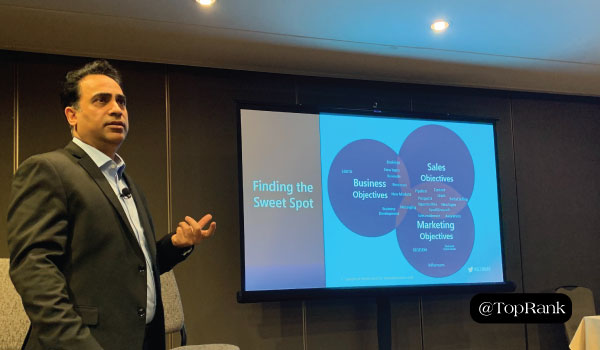
 It’s a tale as old as time. The marketing team is hyper-focused on awareness campaigns, events, and driving more leads to fill the funnel. Meanwhile, the sales team is hyper-focused on meeting sales and revenue goals, and nurturing relationships to empty the funnel. These two teams occupy two very different functional areas within a company. They’re moving at completely different speeds. They’re operating under their own rules. And as a result, there’s tension, misunderstanding, and even … hate. But according to Shahid Javed, Director of Enterprise Marketing for Hughes Network Systems, B2B marketers can be change agents here. They can give and get love from their sales teams. And they can do it in as little as 60 days. How? Shahid says you need a short- and long-term strategy to foster the collaboration, love, and alignment needed to drive results. In his session at B2B Marketing Exhange in Scottsdale, AZ, he focused on the short-term strategy to help marketers understand where they can start and get some immediate traction. Let’s dive in.
It’s a tale as old as time. The marketing team is hyper-focused on awareness campaigns, events, and driving more leads to fill the funnel. Meanwhile, the sales team is hyper-focused on meeting sales and revenue goals, and nurturing relationships to empty the funnel. These two teams occupy two very different functional areas within a company. They’re moving at completely different speeds. They’re operating under their own rules. And as a result, there’s tension, misunderstanding, and even … hate. But according to Shahid Javed, Director of Enterprise Marketing for Hughes Network Systems, B2B marketers can be change agents here. They can give and get love from their sales teams. And they can do it in as little as 60 days. How? Shahid says you need a short- and long-term strategy to foster the collaboration, love, and alignment needed to drive results. In his session at B2B Marketing Exhange in Scottsdale, AZ, he focused on the short-term strategy to help marketers understand where they can start and get some immediate traction. Let’s dive in.
The post Sales & Marketing Alignment: Shahid Javed Shares How to Go from Hate to Love in 60 Days appeared first on Online Marketing Blog - TopRank®.
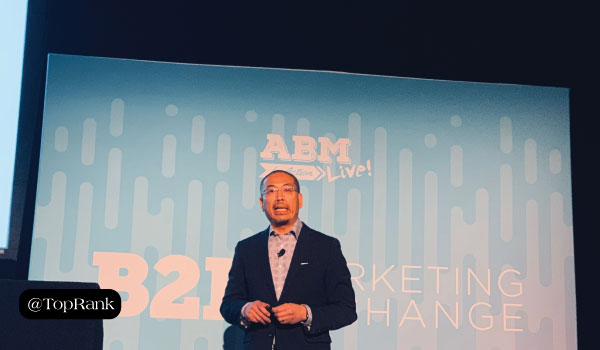
 Account-based marketing (ABM) has been a rising trend for B2B brands for roughly a decade. And it’s appeal (and effectiveness when done right) is rooted in thinking differently—in transforming your traditional approach to targeting, engagement, and nurturing to drive results. But for Kelvin Gee, Oracle’s Senior Director of Modern Marketing Business Transformation, and his team, thinking differently has led to piloting an account-based framework. (Notice, “marketing” is missing.) “We believe words matter,” he told a packed room at B2B Marketing Exchange in Scottsdale, AZ. “[If we called our initiative ‘account-based marketing’], sales would think it was just another campaign of the month.” “So, we just call it ‘account-based’ because we’re all in it together,” he said. “It’s not a tactic or event. It’s a go-to-market strategy.” This all-in-it-together mantra should resonate with B2B marketers. Simply put, if we want to scale our marketing efforts and drive tangible and transformative business results, we need alignment and buy-in across the organization; we need to be a team.
Account-based marketing (ABM) has been a rising trend for B2B brands for roughly a decade. And it’s appeal (and effectiveness when done right) is rooted in thinking differently—in transforming your traditional approach to targeting, engagement, and nurturing to drive results. But for Kelvin Gee, Oracle’s Senior Director of Modern Marketing Business Transformation, and his team, thinking differently has led to piloting an account-based framework. (Notice, “marketing” is missing.) “We believe words matter,” he told a packed room at B2B Marketing Exchange in Scottsdale, AZ. “[If we called our initiative ‘account-based marketing’], sales would think it was just another campaign of the month.” “So, we just call it ‘account-based’ because we’re all in it together,” he said. “It’s not a tactic or event. It’s a go-to-market strategy.” This all-in-it-together mantra should resonate with B2B marketers. Simply put, if we want to scale our marketing efforts and drive tangible and transformative business results, we need alignment and buy-in across the organization; we need to be a team.
The post Kelvin Gee Delves Into Key Learnings from Oracle’s Account-Based (Marketing) Initiative appeared first on Online Marketing Blog - TopRank®.

 Quick question, B2B marketers: How many of you wake up feeling like this about your B2B content? via GIPHY Not so much? Hey, it’s OK. You’re a passionate and proud B2B marketer. But finding a way to create exciting, inspiring, infotaining content that connects with your audience is hard work. After all, B2B isn’t innately sexy—it’s booooooring. Oh, and between content overload, changing consumer preferences for personalization, and diminishing audience trust, it’s increasingly hard to capture and keep attention. So, here’s another question: Are you ready to say bye-bye to boring content and hello to exciting, inspiring, and infotaining content experiences? Yes so much? Good. Because, as TopRank Marketing CEO Lee Odden told a packed room at B2B Marketing Exchange this week, you can. How? By bringing two incredibly powerful content marketing tactics together: interactive content and influencer content. Why interactive? Why influencers? Why interactive and influencers? Here’s how Lee broke it down.
Quick question, B2B marketers: How many of you wake up feeling like this about your B2B content? via GIPHY Not so much? Hey, it’s OK. You’re a passionate and proud B2B marketer. But finding a way to create exciting, inspiring, infotaining content that connects with your audience is hard work. After all, B2B isn’t innately sexy—it’s booooooring. Oh, and between content overload, changing consumer preferences for personalization, and diminishing audience trust, it’s increasingly hard to capture and keep attention. So, here’s another question: Are you ready to say bye-bye to boring content and hello to exciting, inspiring, and infotaining content experiences? Yes so much? Good. Because, as TopRank Marketing CEO Lee Odden told a packed room at B2B Marketing Exchange this week, you can. How? By bringing two incredibly powerful content marketing tactics together: interactive content and influencer content. Why interactive? Why influencers? Why interactive and influencers? Here’s how Lee broke it down.
 (Image credit: HubSpot) Eighty-one percent of HubSpot respondents said they trust friends and family over business. In addition, DemandGen Report’s 2018 Content Preferences Survey showed that 78% of B2B buyers place a higher emphasis on the trustworthiness of the content source, and 65% have a higher preference for credible content from industry influencers. [bctt tweet="Co-creating and collaborating with influencers can play a role at every stage of the customer lifecycle. - @leeodden #InfluencerMarketing #ContentMarketing" username="toprank"]
(Image credit: HubSpot) Eighty-one percent of HubSpot respondents said they trust friends and family over business. In addition, DemandGen Report’s 2018 Content Preferences Survey showed that 78% of B2B buyers place a higher emphasis on the trustworthiness of the content source, and 65% have a higher preference for credible content from industry influencers. [bctt tweet="Co-creating and collaborating with influencers can play a role at every stage of the customer lifecycle. - @leeodden #InfluencerMarketing #ContentMarketing" username="toprank"]
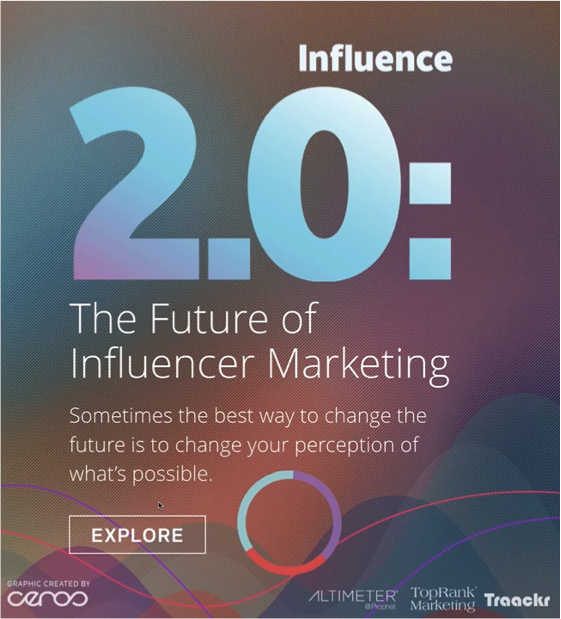


The post Bye-Bye Boring B2B: Lee Odden Shows B2BMX Attendees the Power of Interactive Influencer Content appeared first on Online Marketing Blog - TopRank®.

 Informative. Engaging. Entertaining. Inspiring. Interactive content is a rising B2B marketing star, allowing brands to break free of their “boring-to-boring” reputations to give their audiences bold, beautiful, badass experiences. And to make it increasingly easy for B2B content marketers to deliver those interactive experiences, interactive content tools—from simple web-based tools to robust platforms—have proliferated. But here’s the thing: From upping marketing efficiency to collecting unique audience data insights, the beauty and utility of many interactive content tools extends well beyond content creation and delivery. So, if you truly want to make the most of your interactive content investments, you should take care in making the most of your tools of choice. How? Here are a few tips.
Informative. Engaging. Entertaining. Inspiring. Interactive content is a rising B2B marketing star, allowing brands to break free of their “boring-to-boring” reputations to give their audiences bold, beautiful, badass experiences. And to make it increasingly easy for B2B content marketers to deliver those interactive experiences, interactive content tools—from simple web-based tools to robust platforms—have proliferated. But here’s the thing: From upping marketing efficiency to collecting unique audience data insights, the beauty and utility of many interactive content tools extends well beyond content creation and delivery. So, if you truly want to make the most of your interactive content investments, you should take care in making the most of your tools of choice. How? Here are a few tips.
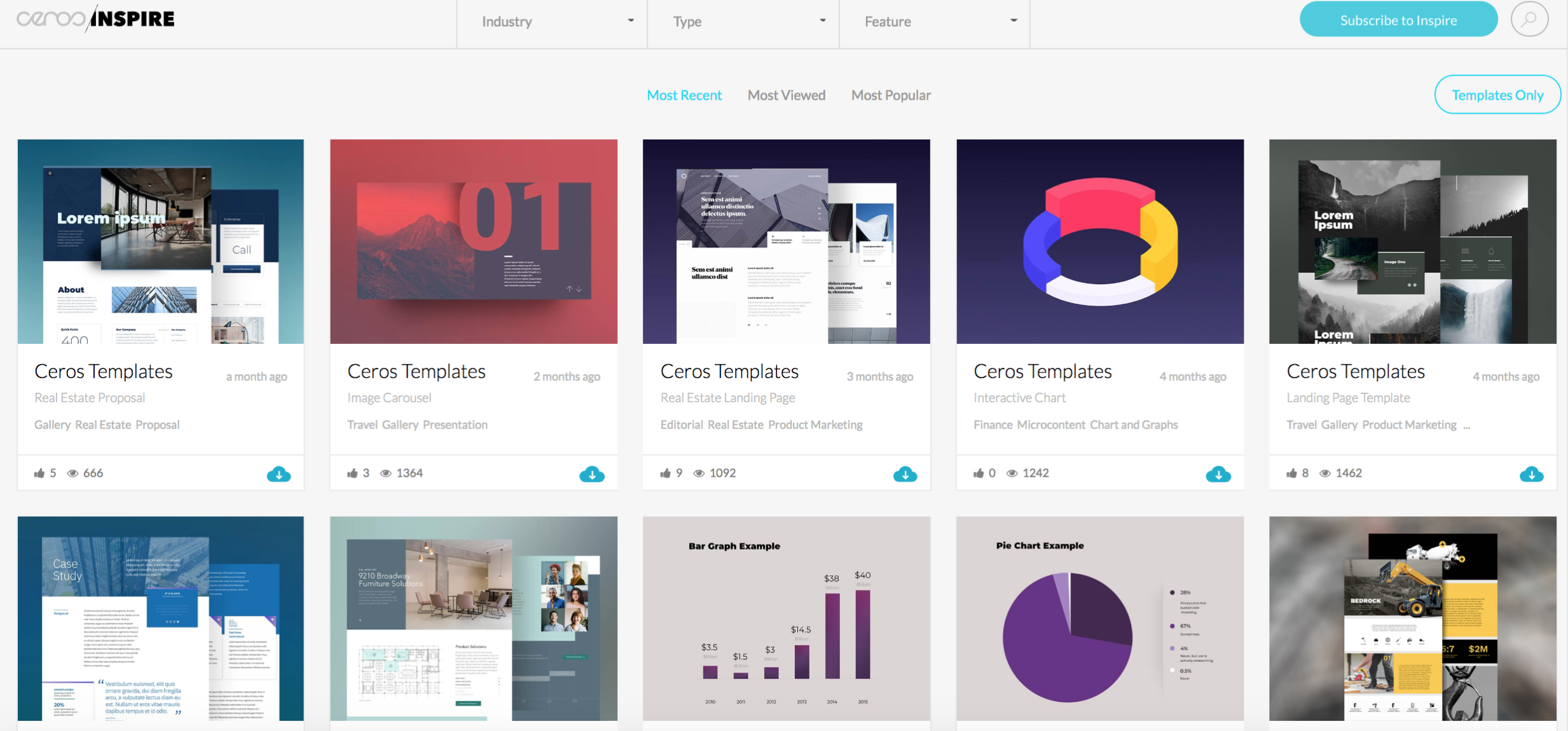
 In addition, some interactive content tools give you the ability to create your own templates, which is an excellent feature to take advantage of if you’re creating a content series or if you’d like specific design elements to be the same throughout every piece you create. SnapApp, which now bills itself as lead qualification platform for marketers, is a great tool for creating interactive quizzes. And the SnapApp team offers a super simple five-step process for creating a template.
In addition, some interactive content tools give you the ability to create your own templates, which is an excellent feature to take advantage of if you’re creating a content series or if you’d like specific design elements to be the same throughout every piece you create. SnapApp, which now bills itself as lead qualification platform for marketers, is a great tool for creating interactive quizzes. And the SnapApp team offers a super simple five-step process for creating a template. 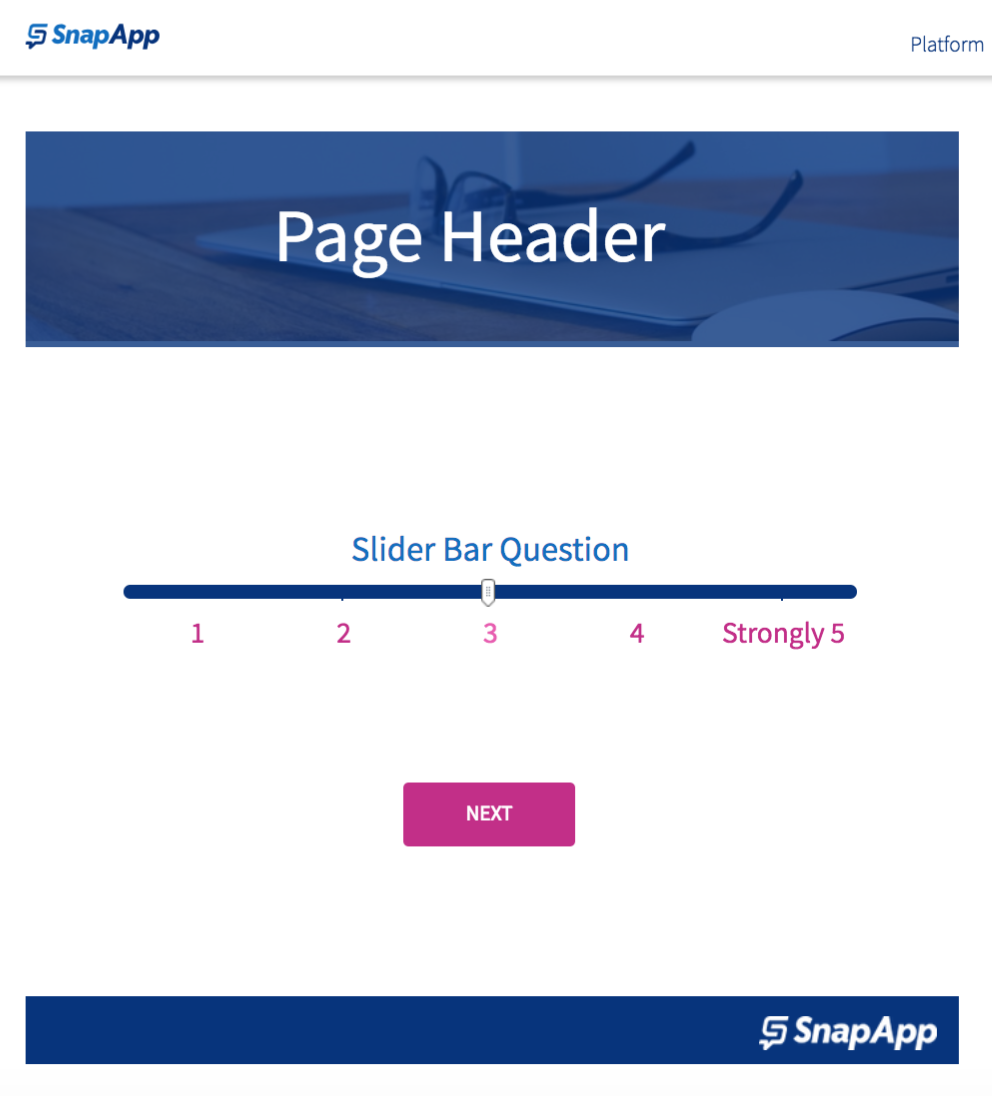
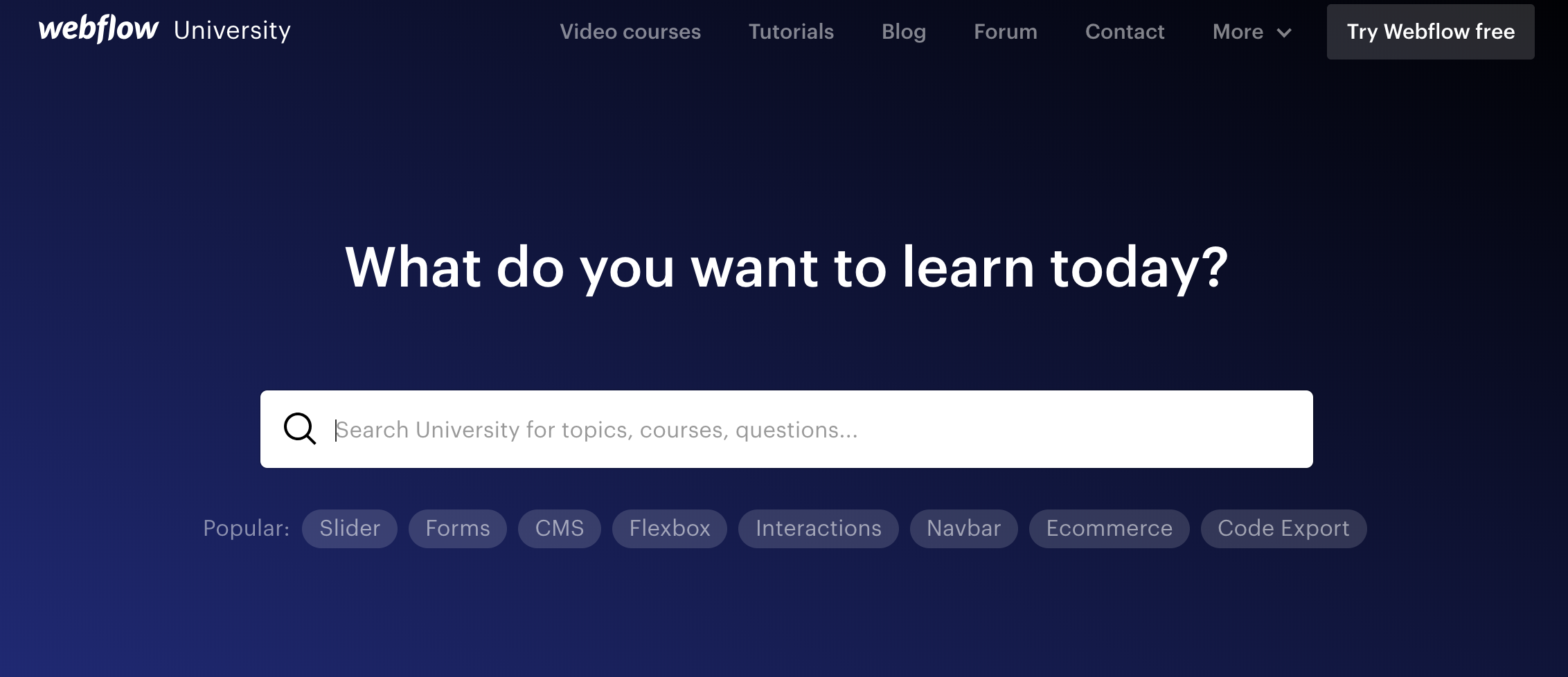 As another example, Ceros Educate is a dedicated learning portal, featuring courses for designers who are just getting started or need a refresher, as well as a plethora of articles that detail specific functions and features. There’s also a collection of resources for developers.
As another example, Ceros Educate is a dedicated learning portal, featuring courses for designers who are just getting started or need a refresher, as well as a plethora of articles that detail specific functions and features. There’s also a collection of resources for developers. 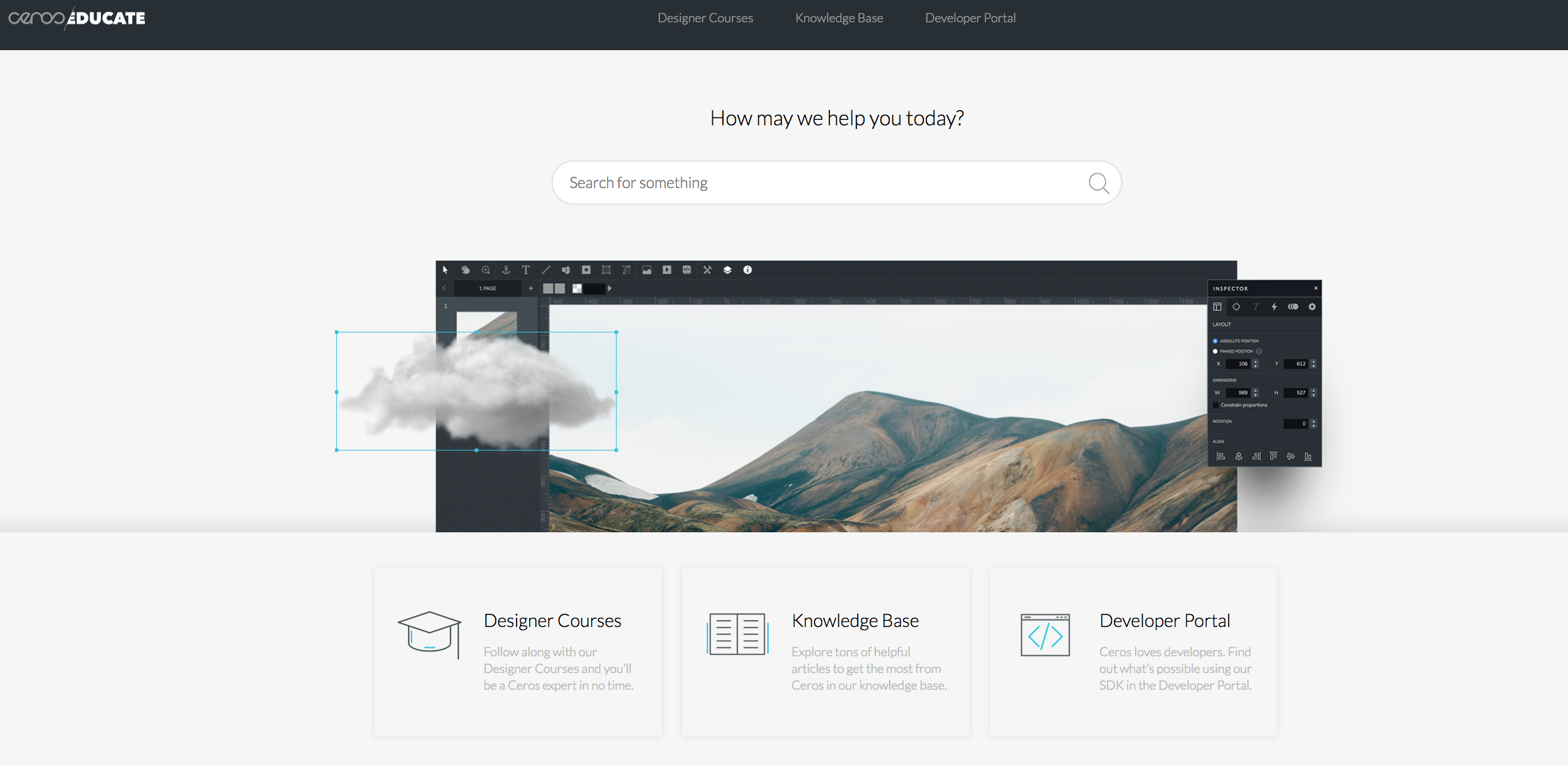 Finally, even Qzzr, which boasts an extremely simple interface, offers a learning and support resouce featuring advice and insights from its team.
Finally, even Qzzr, which boasts an extremely simple interface, offers a learning and support resouce featuring advice and insights from its team. 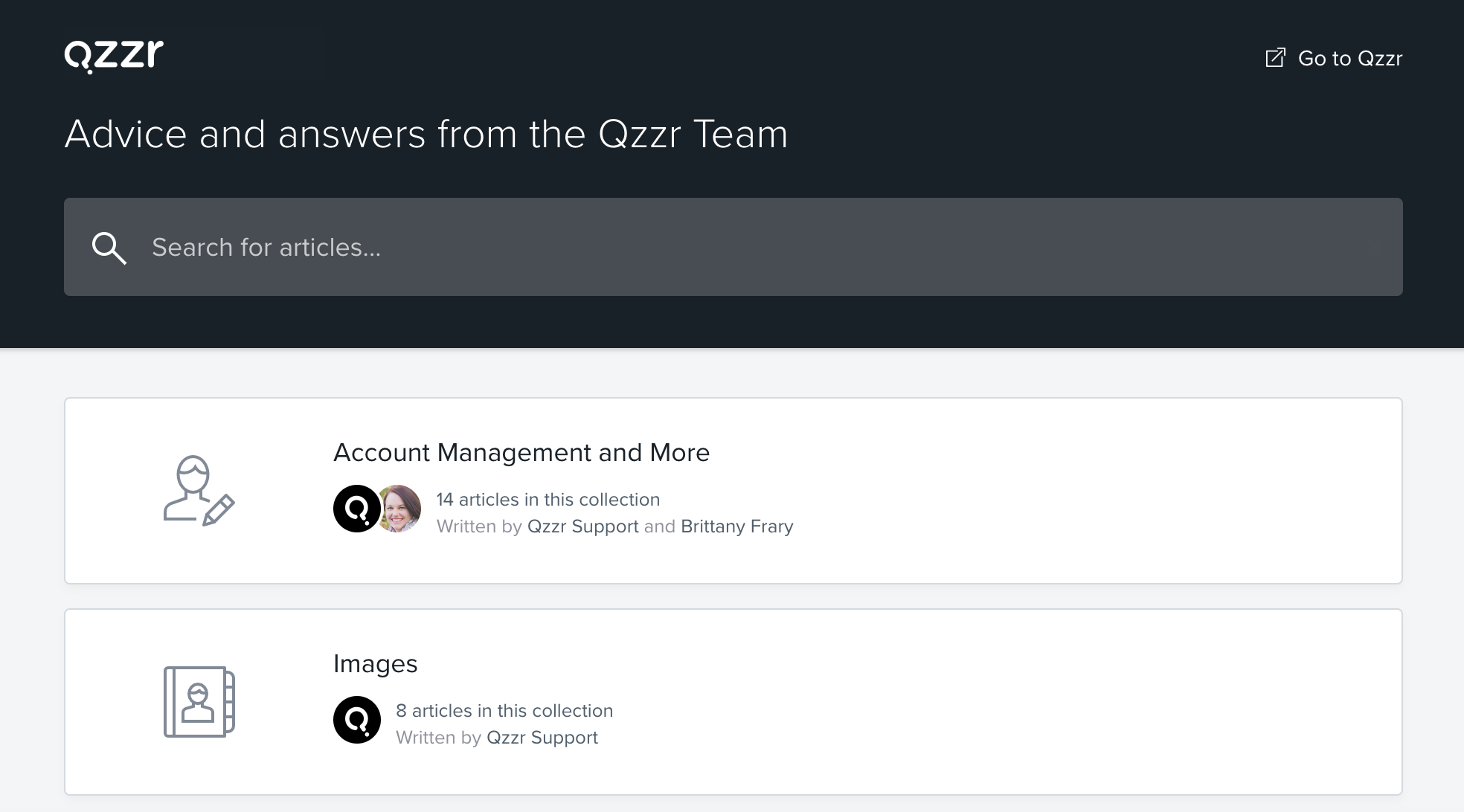
The post How B2B Marketers Can Make the Most of Interactive Content Tools appeared first on Online Marketing Blog - TopRank®.

Editor’s Note: This post was originally published in March of 2012 and has been updated for accuracy and comprehensiveness.
Whether you’re going to hire someone to run your SEO campaign or you’re going to take a stab at it on your own, there are certain skills that help the optimization process happen smoothly.
The skill set for SEO experts is typically quite broad, but there’s normally a baseline of traits that contribute to their digital prowess. In considering how you or your SEO service provider handles your optimization, keep an eye out for these 10 skills.
It’s important to remember that no two SEO plans are completely alike. Every website is different, and there are many factors that impact a site’s search engine ranking.
Because of that, it’s imperative that an SEO expert should be able to find potential issues on the websites that they work on. This can be done by engaging in competitor research and figuring out what’s working or not working for some of your chief rivals.
SEO success boils down to having the ability to “out-optimize” your chief competitors. An SEO expert should be a critical thinker; someone who can examine your campaign vs. those of your rivals to determine what went right, what went wrong, why it happened, and how you should go about fixing any problems.
There is no standard SEO formula. That’s why it’s important to bring a critical mind to the table in order to understand unique problems from multiple angles and find creative solutions to correct them.
Prioritization is vital to running a successful SEO campaign. That’s why all SEO experts should have a strong understanding of the steps that need to be taken. Each of these steps should be prioritized as it pertains to their importance and difficulty.
For example, back link building is one of the most time consuming and difficult aspects of the SEO process. It is also one of the most important factors in determining ranking. A backlink is a link to your site from a respected website that is relevant to your industry. Think of it as a recommendation. When a site is linking to your page, it is acknowledging that you are an expert in your field.
Because of the difficulty and importance placed on link building efforts, it’s important to give this process lots of time and attention to ensure that it pays off for you in the end. Simple matters like content tweaks, while still important, take far less time and shouldn’t be prioritized.
Research is incredibly important to an SEO campaign. An SEO expert should be someone who mastered the art of researching while still in school and perhaps even enjoyed it on some level. Comfort and confidence are needed for strong research, and make no mistake about it, keyword research is going to take a fair amount of time.
Be thorough and look into every angle when planning out your keywords. SEO experts know the importance of terms that are both high value, meaning that there is a large demand for them, and relevant. Relevancy is huge. If your SEO director is telling you that you should apply keywords that have nothing to do with your product of service, that’s black hat SEO and it will actually hurt your ranking in the long run.
An SEO expert should be well versed in tools like Google’s Keyword Planner. It’s also important to do a lot of research the competition, but be careful not to copy them. What works for one business might not work for another, even if they’re in the same industry.
Finally, and most importantly, SEO experts need to constantly research Google, and stay on top of its ever changing search algorithm. SEO is not something that you just learn once and then never touch again. You have to always be reading articles and paying close attention to what Google is doing. If you fall behind, you’ll lose out on a lot of progress.
Analytics are the backbone of SEO. It’s how SEO experts measure success, so it should be a regular part of their day. Every action that is taken during an SEO campaign can and should be measured.
Experts in SEO should understand how to pull analytics as well as how to read and interpret the data that they’re receiving.
But they have to know a lot more than how to simply read the results. Any SEO expert worth the title will know how to take action and apply those analytics to the site that they’re working on in order to achieve continued success.
SEO is a report based process, so any SEO professional who does not have strong analysis skills will be unable to monitor their successes and failures.
Throughout the SEO process, you have to make decisions on the go. It is a constantly evolving atmosphere and you can’t always wait to discuss developments in a committee.
What’s more, SEO is never a consistent process. Google is constantly changing the way it examines websites and changes have to be made fast, lest you lost the progress you’ve gained. That’s why it’s important that SEO experts have the ability to make decisions quickly.
Knowing how to make the best decision in a given situation without having to ask 10 different people their opinions is a strong quality that all SEO experts should demonstrate. Such a skill only comes from having inside out knowledge of Google’s process, and keeping an ear to the ground to determine when things are changing.
If a specific strategy that an SEO expert believed would be a sure thing turns out to be a flop, it’s important that they know when it’s time to course correct.
One size does not always fit all with SEO. That means what worked well for other companies won’t necessarily be a slam dunk for another company. Your SEO expert should have the flexibility to switch strategies at a given moment.
What’s more, it’s important that these strategy shifts not kill any momentum or slow the process down in any way.
Strong writing skills are a must for anyone managing an SEO campaign. Remember, search engine optimization is a content driven strategy, and SEO writing is an art form that not everyone is good at.
It is exceedingly difficult to weave keywords into your content without making it seem forced. There is nothing more painful than reading a blog or information page that has been obviously stuffed to the brim with keywords. Readers see right through it and so does Google. At the end of the day, bad writing may actually hinder your SEO progress.
SEO experts should also understand what kind of content gets clicks in your industry. You have to appeal to both Google and your core audience. What’s the point in drawing people to your site if the content is bad and doesn’t encourage customers to make a purchase?
An SEO specialist also needs to understand how to blog effectively for link building. One of the best ways to get links for your website is to write blogs and shop them around to other relevant sites. These blogs should not be about your service specifically, but rather a general information piece that shows off your expertise and includes a link back to your site.
SEO experts should specialize in writing content for both web pages and blogs, creating titles, writing metadata, and more.
While SEO experts don’t have to be web designers, it’s important that they understand the basics of web design and Meta tags. SEO specialists have to be a rare breed of marketing professional with an understanding of how to merge web design and SEO strategy in a way most web designers would not appreciate.
When you’re designing a site for SEO purposes, you have to always keep the overall strategy in mind. Designing an SEO compliant site means relying less on artistic vision and more on cold hard data, which flies in the face of what most designers are looking to do.
Having people skills will help an SEO expert in the realm of client communication. Clients ted to get upset because they don’t understand how the SEO process works. This can lead to frustrations and unfair expectations. It’s important that an SEO expert understands how to properly communicate and manage the expectations of their clients so as not to back themselves into an unwinnable situation.
For example, SEO takes time. Most campaigns will go a full six months before any kind of return on investment is seen. If that is not properly communicated to a client, they may become fed up after the first month or two.
You don’t just want to communicate your point effectively; you want to do it in a way that can reassure people that SEO results will happen in time.
As we mentioned before, the world of Search Engine Optimization is constantly changing. Even experts can get left behind if they’re not keeping up with Google’s constant algorithm changes.
Believe it or not, humility is a skill in the SEO world. Some people simply prefer to learn what they can to do their job, then go home and do other things. For an SEO expert, work cannot be something to just “get through.”
Being an SEO expert never means knowing everything there is to know about the world of SEO. To think so would be arrogant, and there is no room for ego in SEO. Specialists have to be able to recognize when they’ve made mistakes, accept that certain ideas that they’ve had won’t work, and move along quickly and efficiently without stubbornly dragging their heels through the sand.
If you want to hire an SEO expert to improve your search engine standings, it’s important to know what it is that you’re looking for. You want an individual or company that properly embodies all of these 10 vital tasks.
You need critical minds who understand how to prioritize their actions. You need someone who is heavily research minded that won’t mind the long hours that it takes to compile lists of high-value relevant keywords. It has to be someone who knows how to analyze a website, make decisions on the fly, and is flexible enough to abandon failing strategies at a moment’s notice and adopt an entirely new perspective.
You’re looking for a strong writer with a background in web coding, who understands what needs to happen on the back end for SEO to truly succeed. What’s more, your SEO professional should be able to easily explain the process to you and manage your expectations while remaining humble and keeping their ear to the Google ground.
Sometimes it can be difficult to find one person that embodies these specific traits. That’s why it’s often a great idea to employ the services of a full-service SEO marketing firm over bringing in an in house employee to manage your campaign full time. An SEO firm puts an entire team of professionals at your disposal, working together toward one common goal, to push your website up to the first page of Google and to keep it there.
SEO can and does work. Don’t be discouraged by a previous bad experience or a lack of quick progress. Invest in SEO and watch your visibility rise to the top of the world’s most trafficked search engines.
The post 10 Skills Every SEO Expert Should Have appeared first on HigherVisibility.

 Marketers are engaged in a continuous battle to gain an edge when it comes to SEO, seeking those crucial advantages provided by top visibility where customers are looking. Multiple disciplines from technical SEO to creative content can be leveraged to win the search marketing game. At TopRank Marketing, we believe the best answer to this quandary is… well, to be the Best Answer. To simplify and clarify, it might be helpful to take a step back. In October of 2000, Larry Page laid out his ambitious vision for Google, a company he’d founded along with Sergey Brin just two years earlier. Page foresaw his creation as “the ultimate search engine that would understand everything on the Web. It would understand exactly what you wanted, and it would give you the right thing.” “We’re nowhere near doing that now,” he admitted. “However, we can get incrementally closer to that, and that is basically what we work on.” At the time, here’s what the Google homepage looked liked (prepare for nostalgia shock in 3… 2… 1…):
Marketers are engaged in a continuous battle to gain an edge when it comes to SEO, seeking those crucial advantages provided by top visibility where customers are looking. Multiple disciplines from technical SEO to creative content can be leveraged to win the search marketing game. At TopRank Marketing, we believe the best answer to this quandary is… well, to be the Best Answer. To simplify and clarify, it might be helpful to take a step back. In October of 2000, Larry Page laid out his ambitious vision for Google, a company he’d founded along with Sergey Brin just two years earlier. Page foresaw his creation as “the ultimate search engine that would understand everything on the Web. It would understand exactly what you wanted, and it would give you the right thing.” “We’re nowhere near doing that now,” he admitted. “However, we can get incrementally closer to that, and that is basically what we work on.” At the time, here’s what the Google homepage looked liked (prepare for nostalgia shock in 3… 2… 1…): 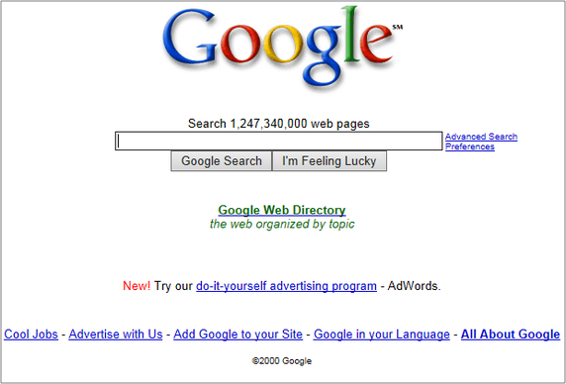 Fast-forward almost 20 years. Google’s interface looks decidedly more modern and its functionality is now much closer to what Page envisioned. Through artificial intelligence, machine learning, and sophisticated algorithms, the search engine is amazingly adept at understanding a searcher’s intent and motives. And digital marketers are just out here trying to keep pace.
Fast-forward almost 20 years. Google’s interface looks decidedly more modern and its functionality is now much closer to what Page envisioned. Through artificial intelligence, machine learning, and sophisticated algorithms, the search engine is amazingly adept at understanding a searcher’s intent and motives. And digital marketers are just out here trying to keep pace.
Google has been encouraging this type of behavior for years, especially with the Hummingbird update back in 2013. People communicate with conversations, not just keywords. Associating the right keywords with concepts helps the overall content quality as opposed to targeting only one or a couple keywords per page.In other words, you want to address not just a specific keyword with your content, but rather the breadth of what someone is trying to learn when they search for that keyword. And so, search marketing today is less about building traditional keyword lists, and more about using those lists – along with other resources – to make deductions about which questions your customers (and potential customers) are asking. Your findings should become the foundational basis for both organic and paid strategy. Unfortunately, no machine will serve up a quick-and-easy answer in this case. It’ll take meticulous research and deep insight about your audience. Let’s walk through that process a little to set you on the right path.
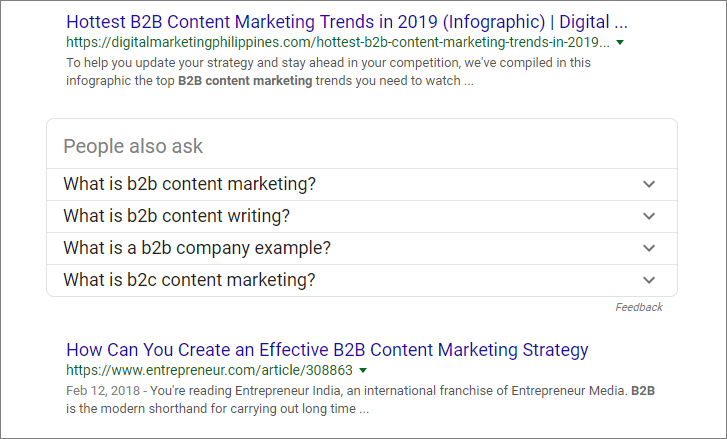
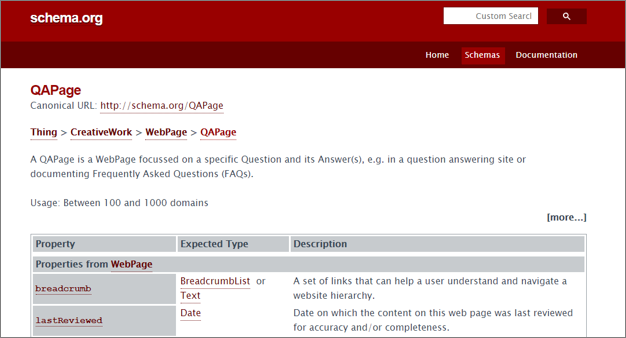
 Example of an AnswerThePublic “question wheel”
Example of an AnswerThePublic “question wheel”
The post How B2B Marketers Can Win at Search with Best Answer Content appeared first on Online Marketing Blog - TopRank®.

 If you’re not convinced that interactive content in the B2B space can work: Well, first check out these interactive content stats. If you’re still on the fence, here’s an object lesson from a master of audience engagement: Freddie plays that 100,000-person crowd like an instrument. You can feel the energy, even through a tiny YouTube window. When you invite your audience to be part of the show, the results can be magical. Now, odds are your brand can’t match the raw charisma of Freddie Mercury in tight jeans. But you can still get your audience cheering with interactive B2B content. Here are a few great examples to light your creative fires and open your B2B minds to the possibilities of interactive.
If you’re not convinced that interactive content in the B2B space can work: Well, first check out these interactive content stats. If you’re still on the fence, here’s an object lesson from a master of audience engagement: Freddie plays that 100,000-person crowd like an instrument. You can feel the energy, even through a tiny YouTube window. When you invite your audience to be part of the show, the results can be magical. Now, odds are your brand can’t match the raw charisma of Freddie Mercury in tight jeans. But you can still get your audience cheering with interactive B2B content. Here are a few great examples to light your creative fires and open your B2B minds to the possibilities of interactive.
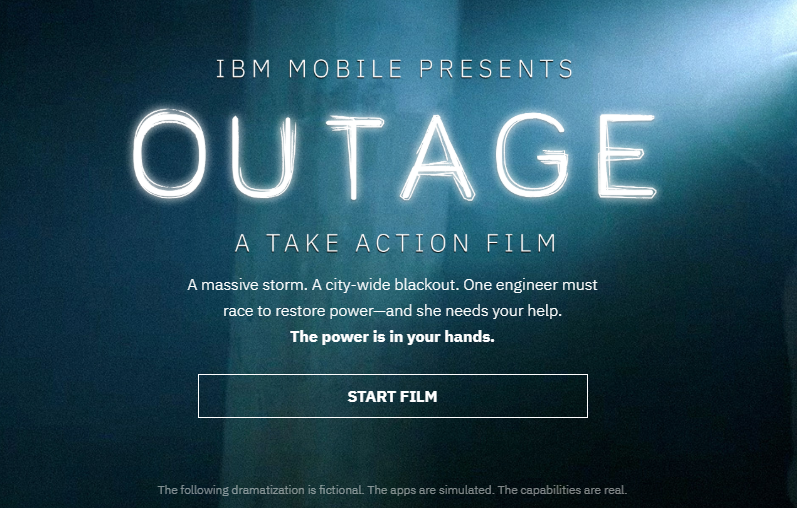 It’s a fully-realized work of fiction, presenting an original story of a power plant operator struggling to bring power back on during an outage. The user has to help the protagonist make decisions (and learn about IBM’s app suite along the way). The true mark of greatness for this piece is it’s compelling even if you know nothing about mobile apps for power plant management. It actually stands on its own while still being relevant to IBM’s target customer.
It’s a fully-realized work of fiction, presenting an original story of a power plant operator struggling to bring power back on during an outage. The user has to help the protagonist make decisions (and learn about IBM’s app suite along the way). The true mark of greatness for this piece is it’s compelling even if you know nothing about mobile apps for power plant management. It actually stands on its own while still being relevant to IBM’s target customer.

 The result? An instantly engaging piece that encourages readers to explore. As a bonus, we were able to use the theme for spin-off pieces like blog posts and promotions.
The result? An instantly engaging piece that encourages readers to explore. As a bonus, we were able to use the theme for spin-off pieces like blog posts and promotions.
 There’s minimal interaction required — the user puts in a URL and an email address— but the in-depth results are more than compelling. It’s a great example of how to win customers by providing value up-front.
There’s minimal interaction required — the user puts in a URL and an email address— but the in-depth results are more than compelling. It’s a great example of how to win customers by providing value up-front.

 Read the full case study to learn more about our approach to this interactive content campaign.
Read the full case study to learn more about our approach to this interactive content campaign.
 On every stage of the game, you get two to three pieces of marketing advice and one question to answer. The questions are all stuff that’s useful to SnapApp: How big your team is, what your role is, etc. It’s a lot to ask, but the useful info and whimsical experience make it a fair trade for the customer.
On every stage of the game, you get two to three pieces of marketing advice and one question to answer. The questions are all stuff that’s useful to SnapApp: How big your team is, what your role is, etc. It’s a lot to ask, but the useful info and whimsical experience make it a fair trade for the customer.
The post B2B Brands Go Bold: 7 Great Examples of Interactive B2B Content appeared first on Online Marketing Blog - TopRank®.